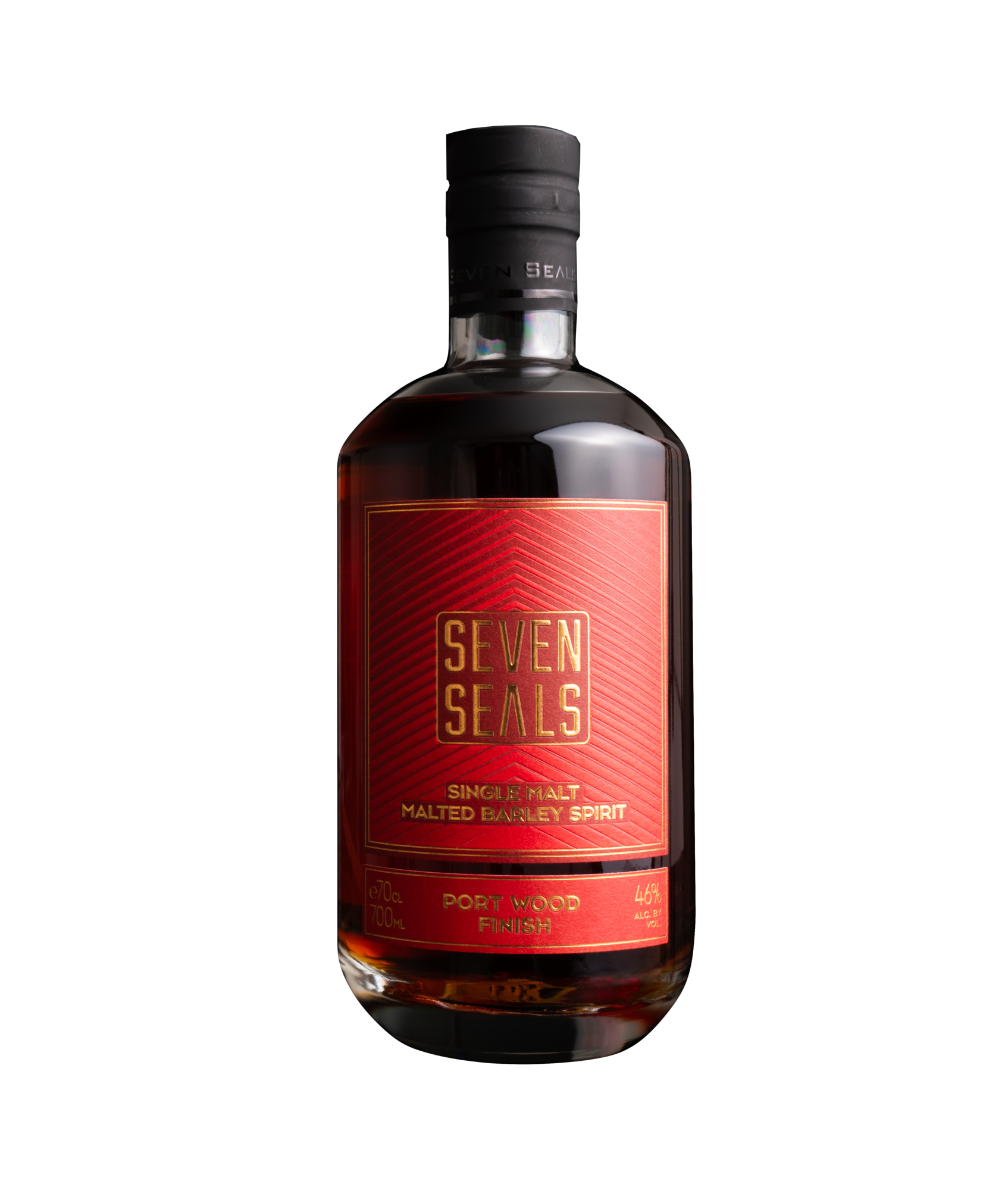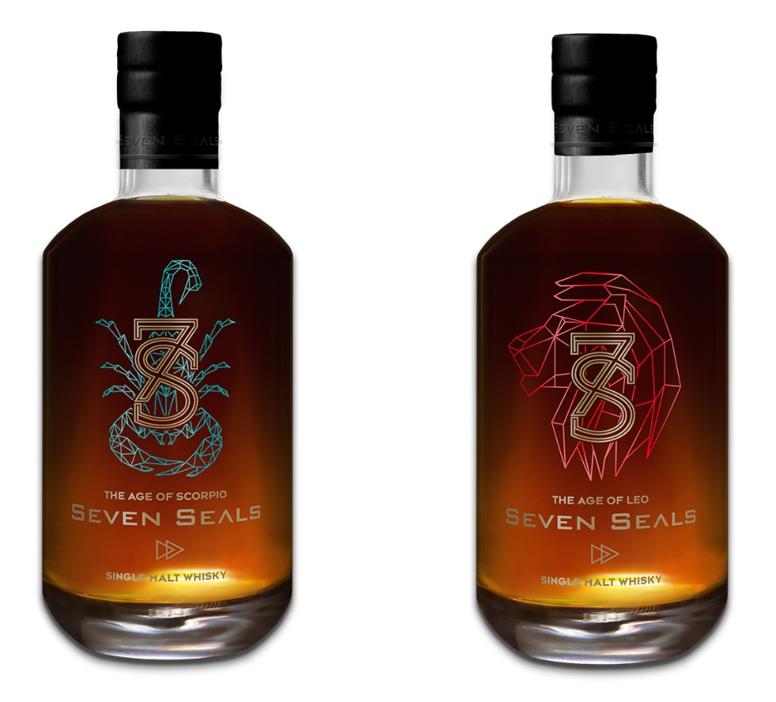Extraordinary - Seven Seals Whisky
Distillation has been practiced for thousands of years, and from it the production of whisky (also called "water of life") has evolved, and through ongoing progress the processes have been perfected. This craft, namely to give the distillates from fruits and from grains their special characteristic and note through the contact with wood, has therefore been practiced for a long time. The role of such aging is particularly pronounced in whiskey, which without it would be just a simple grain spirit made from barley malt. But also wine and fruit brandies would not have their culinary value without such maturation. This aging usually takes place in wooden barrels, especially those made of oak. But there are question marks here, especially in the case of whisky. The increasing demand and the corresponding construction of new large capacities leads to the barrel shortage of high quality barrels. Therefore, like every generation, we must always be open to innovation in order to keep pace with change.
The variety of flavors of single malt whiskies is infinite: from slightly citrusy and very delicate to full-bodied malts with lush notes to earthy, very smoky whiskies, you can find it all. But unfortunately, this variety of distinctive whiskies is steadily decreasing due to the lack of good barrels. This is a consequence of the huge demand for the golden elixir. If you know what influence the oak barrel as well as the distillate once contained in it (whisky is mostly matured in previously used oak barrels) have on the whisky (at least 60% of the taste), it is quickly clear: If the barrel quality dwindles, the end product also loses character. The first six years or so in the oak barrel are the most important in the conventional maturation phase of a fine single malt whisky. During this time, about 80% of the cask aroma is released into the liquid. The rest takes place through evaporation loss, also called "angels' share".


Seven Seals Whisky
The development in the production volumes of the malt whisky industry from 2005 to today has been enormous. Today's production at many of the larger distilleries usually has nothing to do with the romantic images of the past. The expansion of the distilling capacities of three large, renowned Scottish distilleries alone has resulted in an additional demand of around 200,000 barrels per year. In addition, various other distilleries are being enlarged or newly built. The demand for oak barrels almost borders on ecological madness. For example, the smallest whiskey distillery in Scotland would have enough barrels for the next 400 years with the additional annual demand of these three distilleries - without having to use any of them a second time.
But where are all these casks to come from without the fabled whisky losing quality? The existing barrels can be used to a limited extent if they are not to lose flavor. The ecological insanity becomes obvious when one considers that already today almost the entire sherry production in Spain is used for the production of malt whisky barrels and the majority of the sherry is not drunk at all. And so one quickly realizes that all malt whisky producers are heading for a serious problem. The standard cask in Scotland is still the used bourbon cask from the USA. There used to be a law that bourbon whiskey could only be matured in new oak barrels. So even barrels used only once were no longer usable from the point of view of the USA, so a cheap barrel source for our Scottish friends. Now, since 2018, the law allows bourbon producers to reuse (2nd Fill).

In the near future, there will inevitably be shortages of good quality barrels, which will ultimately have a negative impact on the quality of the whisky. If one wants to maintain the quality in malt whisky production, the whisky industry must therefore find innovative ways in the future. In recent years, various new whisky distilleries with new innovative maturation processes have come onto the market worldwide. These innovations show that not only the time in the barrel is decisive for the production of a high-quality whisky. Heat, high pressure and various mechanical influences are used to accelerate this phase of aroma release from the barrel to the whiskey. If this maturation process can be shortened, it has two significant advantages: First, all those many casks that have been blocked by storage for decades are back in circulation more quickly, and second, the financial cost of storage is reduced many times over.
Seven Seals has studied, analyzed and found solutions for various processes in whisky production. Our quick operations make the whiskies more delicate, finer and smoother. The annoying aftertaste of tannins is hardly present in our single malt whiskies. Our single malt whiskies are practically sterile after production and that without chemicals! We are always close to the traditional way of working, completely without foreign substances and dyes, only with wood and water. We only bring the diffusion laws from physics more consistently to the application.
That's why: a new process that allows you to age whiskey without compromising quality, instead of a decade within weeks and a few months. There are also weighty economic reasons for this: Capital commitment, increasing cost of barrels and evaporation loss of 2% or more of alcohol per year. The largest part of the production costs of whisky is caused by the barrel aging. Now Dr. Dolf Stockhausen has invented an alternative process and developed it with Mr. Christian Lauper. Dr. Stockhausen started this process because he did not want to wait 10 years for the results when producing his own whisky. He would then have been 82 years old.
This not only provides a way out of the barrel crisis, no, whiskey production (as well as the production of other "brown" spirits) also becomes more elegant, more predictable, less expensive, more hygienic, more environmentally friendly and leads to better products.
By Eat & Travel Magazin Redaktion Highlights Spirituosen
https://eattravelmagazine.com/seven-seals-whisky/




